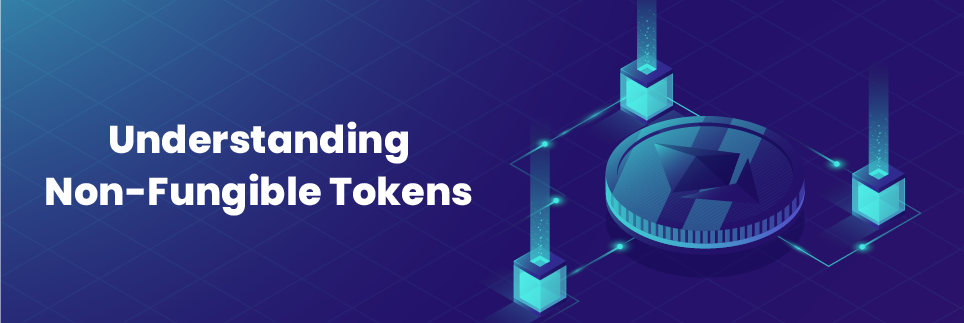In recent years, non-fungible tokens (NFTs) have emerged as a revolutionary technology with the potential to transform various industries beyond the realm of art. While NFTs initially gained attention for their impact on the art market, they have since expanded into areas such as gaming, collectibles, real estate, music, and more. In this article, we will explore the diverse applications and potential of NFTs beyond art, examining how this technology is reshaping industries and creating new opportunities for creators, collectors, and businesses.
Understanding Non-Fungible Tokens (NFTs):
To comprehend the applications of NFTs, it is essential to understand what they are. NFTs are unique digital assets that are stored on a blockchain, typically on platforms like Ethereum. Unlike cryptocurrencies such as Bitcoin or Ethereum, which are fungible and interchangeable, NFTs are indivisible and cannot be exchanged on a one-to-one basis. Each NFT contains distinct metadata, verifying its authenticity, ownership, and provenance. This uniqueness is what makes NFTs valuable and enables their application in various industries.

Diverse Applications of NFTs:
1. Gaming and Virtual Worlds:
NFTs have found significant applications in the gaming industry and virtual worlds. Game developers can create and sell NFTs representing in-game items, characters, or virtual real estate. Players can own and trade these digital assets outside of the game, providing them with true ownership and the potential to earn real-world value. NFTs also enable interoperability between different games and platforms, allowing users to utilize their assets across multiple virtual worlds.
2. Collectibles and Memorabilia:
NFTs have revitalized the concept of digital collectibles, offering a new way to own and trade unique items online. Collectible NFTs can range from digital artwork, trading cards, virtual pets, and even virtual fashion items. These digital collectibles can be bought, sold, and exchanged on NFT marketplaces, providing collectors with a secure and transparent way to manage their collections.
3. Real Estate and Virtual Land:
The concept of owning virtual land has become a reality with NFTs. Virtual worlds and metaverses allow users to buy, sell, and develop virtual properties using NFTs. These virtual lands can serve as venues for virtual events, social interactions, or even as investment opportunities. NFTs enable verifiable ownership and secure transactions, making virtual real estate a burgeoning market.
4. Music and Intellectual Property:
NFTs have the potential to transform the music industry by revolutionizing the way artists monetize their work and engage with their fans. Musicians can release limited edition NFTs representing albums, songs, or concert tickets, offering unique experiences and perks to token holders. NFTs provide artists with direct control over their intellectual property and the ability to receive royalties automatically through smart contracts.
5. Identity and Virtual Avatars:
NFTs can also be utilized for creating and managing digital identities and virtual avatars. Users can own and customize their unique avatars using NFTs, which can then be used across various platforms and virtual experiences. NFT-based digital identities enable users to maintain ownership and control over their virtual personas, creating a sense of authenticity and uniqueness in online interactions.
6. Licensing and Royalties:
NFTs provide an efficient solution for managing licensing and royalties for digital content. Artists and creators can tokenize their work, ensuring transparent ownership and tracking of intellectual property rights. Through smart contracts, creators can receive royalties automatically whenever their NFTs are sold or used in commercial transactions, providing a new revenue stream and reducing the need for intermediaries.
The Potential of NFTs:

1. Authentic
NFTs offer a transparent and immutable record of ownership and provenance. The blockchain technology underlying NFTs ensures that the history and authenticity of each asset can be easily verified. This has significant implications for industries such as art, where provenance and authenticity are crucial factors in determining value.
2. Fractional Ownership and Investment:
NFTs have the potential to democratize ownership and investment opportunities. Fractional ownership of NFTs allows multiple individuals to invest in high-value assets, reducing the barrier to entry and enabling broader participation. This opens up new avenues for investment, especially in rare and valuable digital assets.
3. Enhanced Creator-Fan Engagement:
NFTs facilitate direct engagement between creators and their fans. Through NFTs, creators can offer unique experiences, exclusive content, and personalized interactions to their most dedicated supporters. This strengthens the relationship between creators and their fan base, fostering a deeper sense of community and support.
4. Programmable Assets and Utility:
NFTs can be programmed with smart contracts, enabling them to have built-in functionalities and utility. For example, an NFT representing a concert ticket can grant access to the event and provide additional perks to the holder. This programmability expands the possibilities of NFTs, allowing them to serve as access tokens, membership passes, or even as keys to unlock special features within a digital ecosystem.
Impact on the Internet World
NFTs have brought significant changes to the internet world
1. Democratization of Creativity:
NFTs provide creators with new opportunities to monetize their work directly, bypassing traditional gatekeepers. This decentralization of creativity allows artists, musicians, and other content creators to gain recognition, build their brands, and earn income through direct engagement with their audience.
2. Disintermediation:
By leveraging blockchain technology, NFTs eliminate the need for intermediaries in transactions. This reduces costs, enhances transparency, and ensures that creators receive fair compensation for their work. It also empowers individuals to transact directly with one another, removing barriers and creating a more inclusive digital economy.
3. Shift in Digital Ownership:
NFTs challenge traditional notions of digital ownership by providing verifiable proof of ownership and unique assets in the digital realm. This shift has implications for the way people perceive and interact with digital content, establishing a sense of value, rarity, and ownership that was previously limited to physical assets.
4. Cultural and Social Impact:
NFTs have sparked conversations and debates about the value of digital art, virtual ownership, and the role of blockchain technology in the creative economy. They have fueled discussions around intellectual property rights, fair compensation for creators, and the impact of technology on the art world and other industries.
In conclusion, NFTs have extended their reach beyond the art world, showcasing their potential to reshape various industries and create new opportunities for creators, collectors, and businesses. From gaming and virtual worlds to collectibles, music, real estate, and more, NFTs offer unique advantages such as authenticity, fractional ownership, and programmability. The impact of NFTs on the internet world is undeniable, transforming the way people create, consume, and value digital assets. As the technology continues to evolve and gain wider adoption, it will be intriguing to see how NFTs further revolutionize industries and influence the future of digital ownership and creative expression.